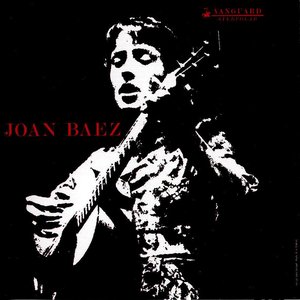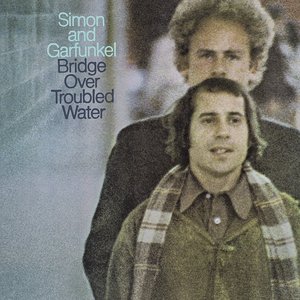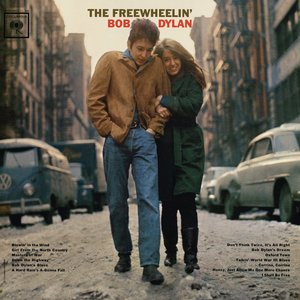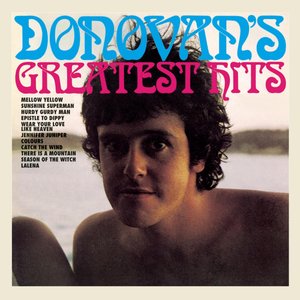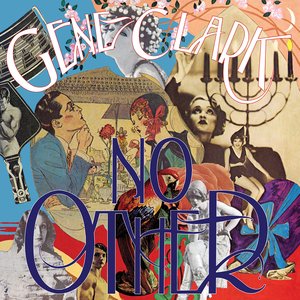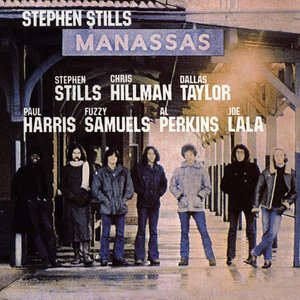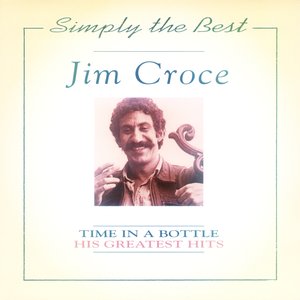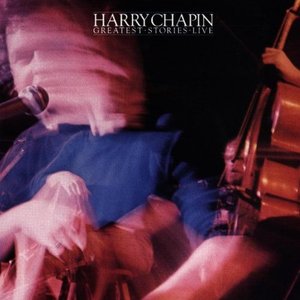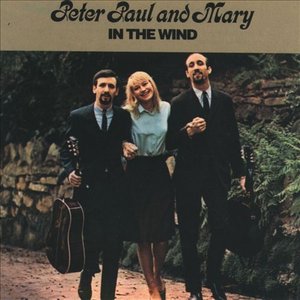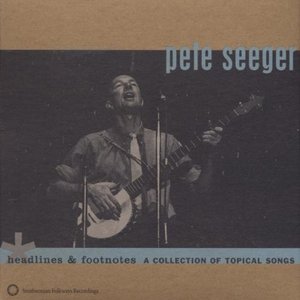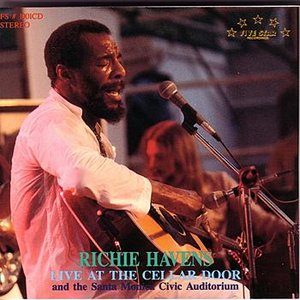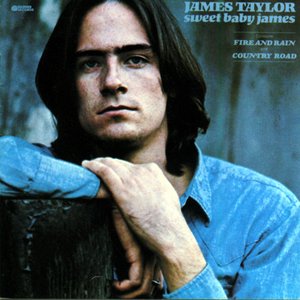Wiki
-
Release Date
28 August 1967
-
Length
7 tracks
"Alice's Restaurant Massacree" is a record by singer-songwriter Arlo Guthrie, released as the title track to his 1967 debut album Alice's Restaurant. It is notable as a satirical, first-person account of 1960s counterculture, in addition to being a hit song in its own right and an inspiration for the 1969 film, also named Alice's Restaurant. The song is one of Guthrie's most prominent works, based on a true incident from his life that began on Thanksgiving Day 1965 with a citation for littering, and ended with the refusal of the U.S. Army to draft him because of his conviction for that crime. The ironic punch line of the story is that, in the words of Guthrie, "I'm sittin' here on the Group W bench 'cause you want to know if I'm moral enough to join the Army—burn women, kids, houses and villages—after bein' a litterbug." The final part of the song is an encouragement for the listeners to sing along, to resist the draft, and to end war.
The song consists of a protracted spoken monologue, with a constantly repeated fingerstyle ragtime guitar (Piedmont style) guitar backing, bookended by a short chorus, the titular song "Alice's Restaurant"; Guthrie has used the short "Alice's Restaurant" bookends and guitar backings for other monologues bearing the Alice's Restaurant name. It lasts 18 minutes and 34 seconds, occupying the entire A-side of the Alice's Restaurant album. The work has become Guthrie's signature song and he has periodically re-released it with updated lyrics.
"Alice's Restaurant" is a satirical, deadpan protest against the Vietnam War draft, in the form of a comically exaggerated but true story from Guthrie's own life. It has been described by at least one source as a shaggy dog story.
In November 1965, when Guthrie was 18 years old near the end of his brief stint at Rocky Mountain College, he spent the Thanksgiving Day holiday in Great Barrington, Massachusetts, at a deconsecrated church being used as a home for two of his friends, Alice and Ray. (Alice owned a restaurant at the time, but other than being the subject of the chorus, none of the events of the song involve the restaurant.) As a favor to Alice and Ray, Guthrie and a friend (not named in the song, but identified in contemporary news reports as Richard Robbins) volunteered to take the church's large stockpile of trash to the local dump, not realizing until they arrived at the dump site that it was closed for the holiday.
They proceeded to dump the trash over a cliff on Nelson Foote, Sr.'s property on Prospect Street, across from the Indian Hill School in the nearby town of Stockbridge. The next day, after spending "a very disagreeable two hours" searching through the trash for a clue and finding an envelope with Ray's name on it, Stockbridge chief of police William Obanhein arrested Guthrie and Robbins for littering.
The song describes to ironic effect Obanhein's frustration at the ensuing "typical case of American blind justice", in which the officer was prepared to present at trial "twenty-seven 8×10 color glossy pictures with circles and arrows and a paragraph on the back of each one explaining what each one was to be used as evidence against us", only to have the judge enter the courtroom accompanied by a seeing-eye dog. Guthrie and Robbins both plead guilty, were fined $25 each by Special Justice James E. Hannon, and picked up the garbage on Saturday afternoon, following a heavy rain. Obanhein said the youths "found dragging the junk up the hillside much harder than throwing it down."He added that he hoped their story would prove to be a deterrent to others.
The song goes on to describe Guthrie's subsequent experience before the Vietnam-era draft board, and the surreal bureaucracy at the New York City induction center at 39 Whitehall Street. Initially, Guthrie attempted to dodge the draft by appearing for his physical exam while hung over. For his second attempt, he attempted to convince the psychiatrist that he was homicidal, which only earned him praise. Finally, when asked whether he had ever been convicted of a crime, Guthrie mentioned the littering incident, and learned that incident was bureaucratically indistinguishable from a violent felony—he was ineligible for induction unless the military decided to issue him a moral waiver. In Guthrie's words, they wanted "to know if I'm moral enough to join the Army—burn women, kids, houses and villages—after bein' a litterbug."
The draft officer did, in fact, reject Guthrie for military service; according to the song, the officer stated "we don't like your kind" and sent "a study in black and white" of Guthrie's fingerprints to Washington (thus hinting at the then-active but still secret COINTELPRO project; public knowledge about COINTELPRO, which investigated numerous Vietnam protesters in the 1960s, would not come until 1971).
In the final part of the song, Guthrie tells the live audience that should they (or someone they know) find themselves facing the draft, the draftee should walk into the military psychiatrist's office and sing, "Shrink, you can get anything you want at Alice's restaurant," and walk out. Guthrie notes that the military would not take it seriously unless "fifty people a day" followed Guthrie's instructions, at which point they would realize that it was "the Alice's Restaurant Anti-Massacree Movement".
"Alice's Restaurant" was first performed publicly with Guthrie singing live on Radio Unnameable, the overnight program hosted by Bob Fass that aired on New York radio station WBAI, one evening in 1966. Guthrie performed the song several times live on WBAI in 1966 and 1967, prior to the song's commercial release. The song proved so popular that at one point Fass (who was known for playing songs he liked over and over again in his graveyard slot) started playing a recording of one of Guthrie's live performances of the song repeatedly; eventually the non-commercial station rebroadcast it only when listeners pledged to donate a large amount of money. It has become a tradition for many classic rock radio stations to play the song each Thanksgiving. At one point in the original recording, Guthrie notes that if two draftees sing the line "You can get anything you want, at Alice's restaurant" in harmony the military will consider them "faggots" (a slur that was more acceptable in 1967) and, because open homosexuals were not allowed in the armed forces until 2012, reject them as soldiers. The song is nonetheless always presented uncut and the Federal Communications Commission has never punished any radio station for playing the song. When he performs the song live in concert, Guthrie now changes the line to something less offensive and often topical: "They'll think you're gay—not that there's anything wrong with that" or "They'll think they're trying to get married in some parts of Kentucky."
The original album rose to #17 on the Billboard chart. The song itself was far too long to be released (or even fit) on a 45 rpm single, and so never made the Billboard Hot 100 (because of this, Billboard classifies Guthrie as a one-hit wonder for his later hit, "City of New Orleans," without regard to his success with "Alice's Restaurant"). Two years after the album came out, Guthrie released "Alice's Rock & Roll Restaurant" as a single—a much shorter (4:43) tune that incorporated the chorus, removed the entire monologue, used a significantly different arrangement, and added extra verses (all of which do little but advertise the restaurant). It peaked at #97 on the Billboard singles chart.
"Alice's Restaurant" was performed on July 17, 1967, at the Newport Folk Festival in a workshop or break-out section on "topical songs," where it was such a hit that he was called upon to perform it for the entire festival.
After the release of the original album, Guthrie continued to perform the song in concert, frequently revising and updating the lyrical content. In 1969, for instance, he performed a 20-minute rendition of the song which (instead of the original narrative) told a fictional story of how Russian and Chinese military operatives attempted to weaponize "multicolored rainbow roaches" they had found at Alice's restaurant, and how the United States defended itself. A recording of this version, given the title "Alice: Before Time Began", was released in 2009 on a CD distributed by Guthrie's own Rising Son Records label; another recording of this version, given the title "The Alice's Restaurant Multicolored Rainbow Roach Affair," has also been released through that record label. By the late 1970s, Guthrie had removed the song from his regular concert repertoire.
In 1984, Guthrie, then on tour supporting George McGovern's 1984 presidential campaign, revived "Alice's Restaurant" to protest Reagan-era policies (specifically the reactivation of the Selective Service System registrations), but this version has not been released on a commercial recording; at least one bootleg of this version from one of Guthrie's performances exists. It was this tour, which occurred near the 20th anniversary of the song, that prompted Guthrie to return the song to his playlist every ten years, usually coinciding with the anniversary of either the song or the incident. The 30th anniversary version of the song includes a follow-up recounting how he learned that Richard Nixon had owned a copy of the song, and he jokingly suggested that this explained the famous 18½ minute gap in the Watergate tapes. Guthrie re-recorded his entire debut album for his 1997 CD Alice's Restaurant: The Massacree Revisited, on the Rising Son label, which includes this expanded version. The 40th anniversary edition, performed at and released as a recording by the Kerrville Folk Festival, made note of some parallels between the 1960s and the then-present day Iraq War and George W. Bush Administration. Guthrie revived the song for the 50th anniversary edition in 2015, which he expected to be his last, as he does not believe he will still be able to perform the song (and may not even be alive) by the time the 60th anniversary comes around in 2025; if he believes he can still perform the song by then, he will hold a 60th Anniversary tour.
The Alice in the song was restaurant-owner Alice May Brock (born c. 1941). In 1964, shortly after graduating from Sarah Lawrence College, Alice used $2,000 supplied by her mother to purchase a deconsecrated church in Great Barrington, Massachusetts, where Alice and her husband Ray would live. It was here rather than at the restaurant—which came later—where the song's Thanksgiving dinners were actually held. Alice was a painter and designer, while Ray was an architect and woodworker. Both worked at a nearby private academy, the music and art-oriented Stockbridge School, from which Guthrie (then of the Queens, New York City neighborhood of Howard Beach) had graduated. Alice Brock only operated the titular restaurant for a short time in 1966 and, after a breakup and abortive reconciliation, divorced Ray in 1968; she went on to launch two more restaurants (a take-out window in Housatonic in 1971 and a much larger establishment in Lenox in the late 1970s) before leaving the restaurant business in 1979. She lives in Provincetown, Massachusetts, and owns an art studio and gallery at 69 Commercial Street. She was diagnosed with emphysema in the mid-1990s. She illustrated the 2004 children's book Mooses Come Walking, written by Guthrie, and authored and illustrated another, How to Massage Your Cat. Ray Brock, after the divorce, moved back to his original home of Virginia and died in 1979 of a heart attack.
In 1969, Random House published The Alice's Restaurant Cookbook (ISBN 039440100X) which featured recipes and hippie wisdom from Alice Brock, as well as photos of Alice and Guthrie, and publicity stills from the movie. A tear-out record was included in the book with Brock and Guthrie bantering on two tracks, "Italian-Type Meatballs" and "My Granma's Beet Jam".
Album descriptions on Last.fm are editable by everyone. Feel free to contribute!
All user-contributed text on this page is available under the Creative Commons Attribution-ShareAlike License; additional terms may apply.

